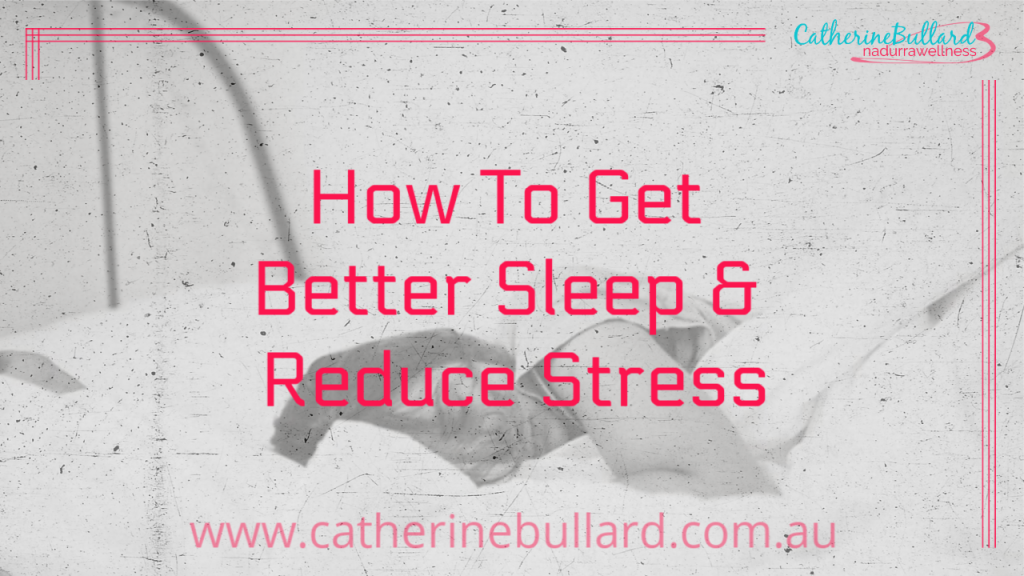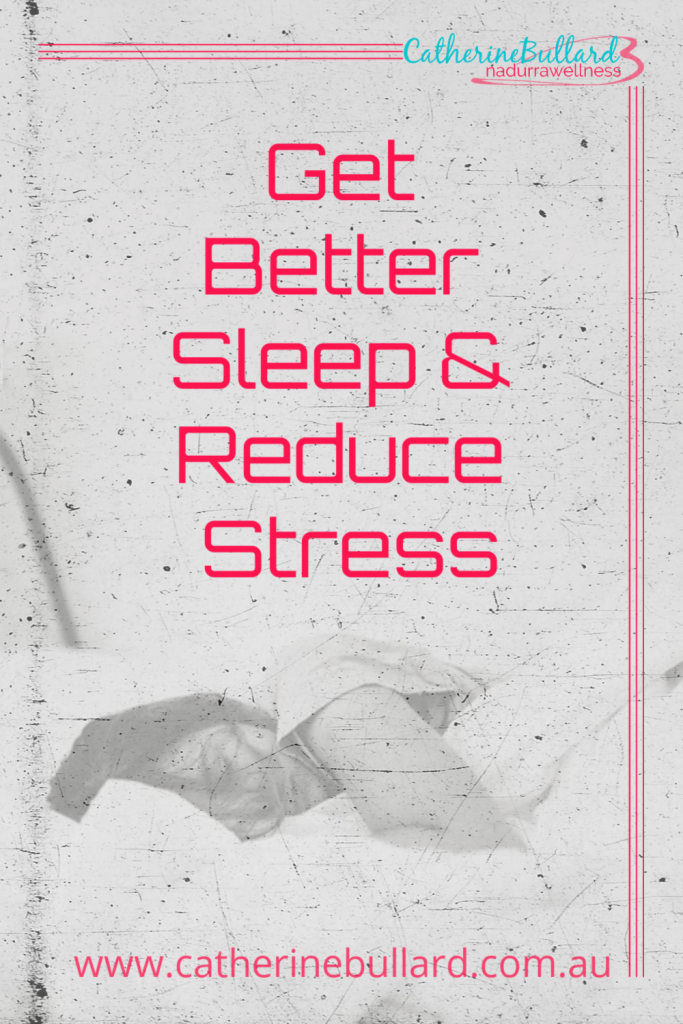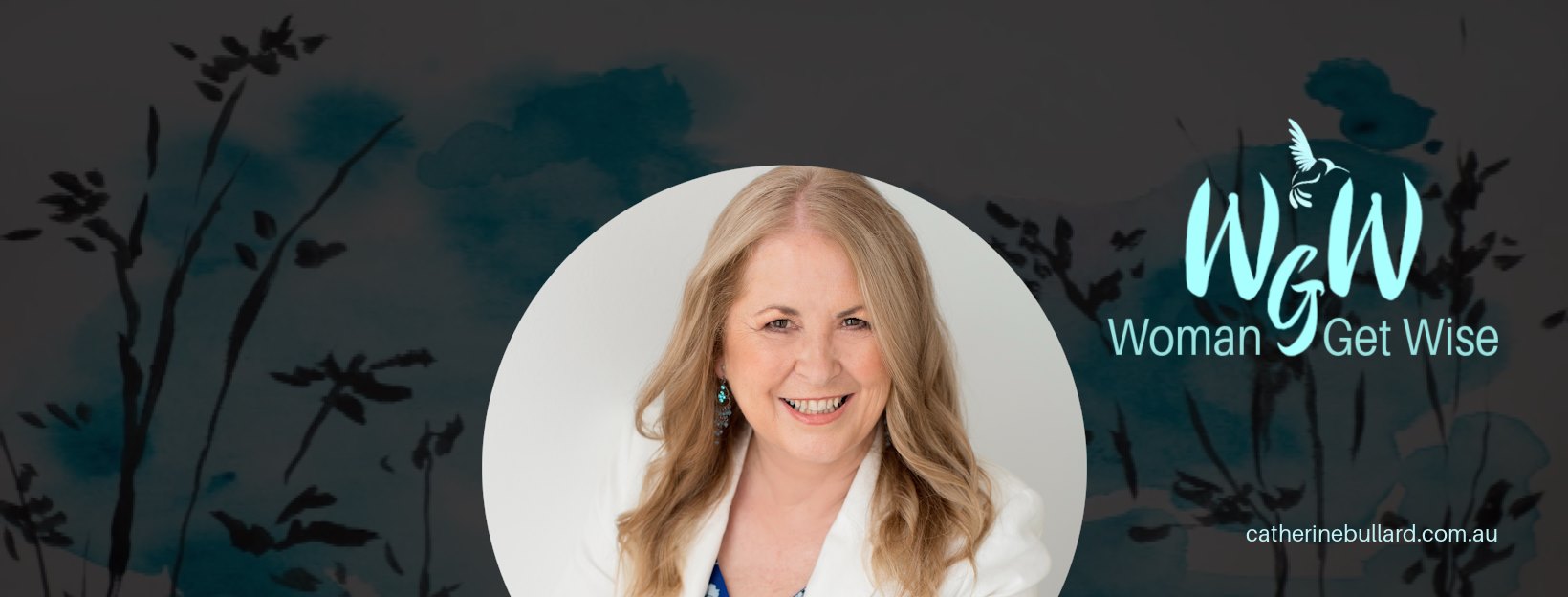Stress is a major obstacle that holds us back from great health. Stress has become an everyday normality in our lives to such extent that we now expect to be stressed. For some people stress can even become a ‘badge of honour’ indicating to others their dedication, reliability and ability to cope in spite of pressure. While stress brings it’s own immediate problems, including inflammation in the body, it also affects us in other not so obvious ways, such as sleep.

The Sleep Stress Link
Sleep and stress are entwined in a constant ongoing relationship. They continually feed back and forth between each other, so that each affects the state of the other. High stress causes problems sleeping, and poor sleep leads to more stress.
When you’re stressed it’s common to have trouble falling asleep. Or you wake during the night and then lie awake for hours with thoughts buzzing around your head. Or perhaps you wake at an ungodly early hour, long before the sun, only to lie awake waiting for the alarm to go off.
Naturally after such a disturbed night with not enough sleep, you spend the next day on edge, finding it difficult to think clearly, barely coping and easily stressed. And as the day ends you face the prospect of another sleepless night.
As days and weeks drag on in this pattern it can feel like this cycle of poor sleep and increased stress will never end.
Of course you can resort to sleeping pills and anti-anxiety meds. But these come with added problems.
Because of the tight relationship between sleep and stress trying to change either on its own can be very difficult.
It takes a combination of natural remedies and changes to lifestyle practices that target both aspects at the same time, to break this pattern apart and give you the relief you crave.
Tips For Better Sleep And Less Stress
Change Bad Habits
- Using your phone, or any other devices including TV before you sleep interferes with your melatonin production. Melatonin is released by your brain to regulate your sleep cycle, and when levels are too low your sleep is affected. Light from these technology devices shuts down melatonin and keeps you awake, sometimes for hours. Stop using devices an hour before bedtime
- Exercise regularly because thirty minutes of exercise during the day helps you fall sleep. Make sure it’s not near bedtime or it will wake you up
- Menopausal hormonal changes can leave you desperate for sleep. If hot flushes, palpitations, or pain are interfering with your sleep a homeopath or natural therapist can help you bring your body back into balance.
- Eat a healthy diet. Eating before bedtime may make sleep worse. Some foods trigger the symptoms of menopause and can interfere with sleep.
- Avoid caffeine. In addition to coffee and tea be aware that caffeine is present in some processed foods, drinks and medications.
- Dairy and wheat foods often cause an upset gut, congestion, and apnoea which disturb sleep.
- Avoid alcohol. Although it may send you off to sleep initially alcohol has a kick-back effect that sees you wide awake a few hours later. It also stops you entering the deeper restful sleep stages.
- Snacks high in sugar and processed grains before bed disturb sleep because they disrupt blood sugar levels.
- Chamomile tea in the evening has a homeopathic effect which relieves anxiety and helps you relax.
- Get a health check-up. There are a number of diseases that can interfere with sleep such as diabetes, fibromyalgia or cardiovascular disease.
Set the Scene
- Make your bedroom an inviting place to sleep. Clear out the clutter and don’t take work, junk or chores anywhere near your bed. You sleep better in an uncluttered environment.
- Turn off your electronic devices. The electro-magnetic fields (EMF’s) surrounding them disrupt the pineal gland and melatonin and serotonin production. You’re better to turn them off or leave them in another room, as they emit radiation even on airplane mode. Get an alarm clock instead.
- Relaxation techniques such as yoga, Qi Gong, massage, or meditation in the two hours before bed help you relax. Choose gentle yoga rather than modern energetic versions.
- Even small amounts of light disrupts your brain patterns and the neurotransmittors it produces which you need for sleep. Keep your room dark. If you do need a night light use a pink Himalayan Salt Lamp in your room, which doesn’t disrupt the brain.
- Beds are for sleeping and that other fun activity. Don’t take your work in with you. If you do work or view TV in bed, or even in the bedroom your brain comes to associate your bed with activitiy rather than with sleeping. It makes getting to sleep even harder.
- If you know what disturbs your sleep be prepared. If you have poor circulation wear warm socks. If you’re a light sleeper easily disturbed by a possum outside the window or a car backfiring, wear earplugs. If even the slightest amount of light disturbs you get a sleep mask.
Night Time Rituals: Establish A Bedtime Routine
- Set a regular bedtime and wake-up time and stick to it, even on the weekends. Your body clock will align itself with these times making it easier to fall asleep and wake up.
- Stop working at least an hour before bed and use the last hour to begin the relaxation process.
- Create a Conscious Self-Care bedtime relaxation routine. Include whatever makes you feel grounded, relaxed and whole. It may include meditation, a warm bath, massage, reading, aromatherapy, calming music, or journaling. Whatever you choose should make you feel good, so that you look forward to doing it every night. Set this routine and your body will begin to associate it with going to sleep.
- Keep a pen and paper beside your bed. When swarming thoughts keep you awake write them down and get them out of your head. Dump the worries and plans for tomorrow from your brain to calm your nervous system.
- Get to bed before midnight. The hours you’re asleep before midnight are when your body detoxes the most. So early sleep is valuable for our health and wellness.
- Don’t watch the clock! It simply increases your stress and anxiety as you watch the hours tick past. Turn it away from you.

Natural Remedies
Within my clinic I find a combination of Homeopathic remedies and herbal essences combined with lifestyle changes are the most effective natural remedies to address sleep problems. They support you to break apart poor sleep patterns and help bring your body back into balance. They also help reduce your sense of overwhelm which reduces your cortisol stress levels.
Your local homeopath or natural therapist can identify a remedy that matches your unique experience with sleep problems.
There a number of natural products available over-the-counter. Many are herbal, others are homeopathic. Each of these may make a huge difference and give you the relief you need. But if you find no relief after trying a few different ones it’s likely that the ingredients they contain are just not the specific ones you need. This is when you need an individualised remedy from a practitioner who can select appropriately for you.
To get on top of your overwhelm and stress levels you need to create a targeted treatment that hits both at the same time.
What’s your favourite home remedy for poor sleep or feelings of overwhelm?
Share it with us in the comments below.
Like to know more about managing stress and sleep?
Join me in on a Conscious Self-Care Women’s Retreat

Disclaimer
All information and opinions presented here are for information purposes only. They are not intended as a substitute for professional advice offered during a consultation with your health care provider. Do not use this article to diagnose a health condition. Speak to your doctor if you think your condition may be serious or before discontinuing any prescribed medication. Please consult with your health care provider before following any of the treatment suggested on this site, particularly if you have an ongoing health issue.



